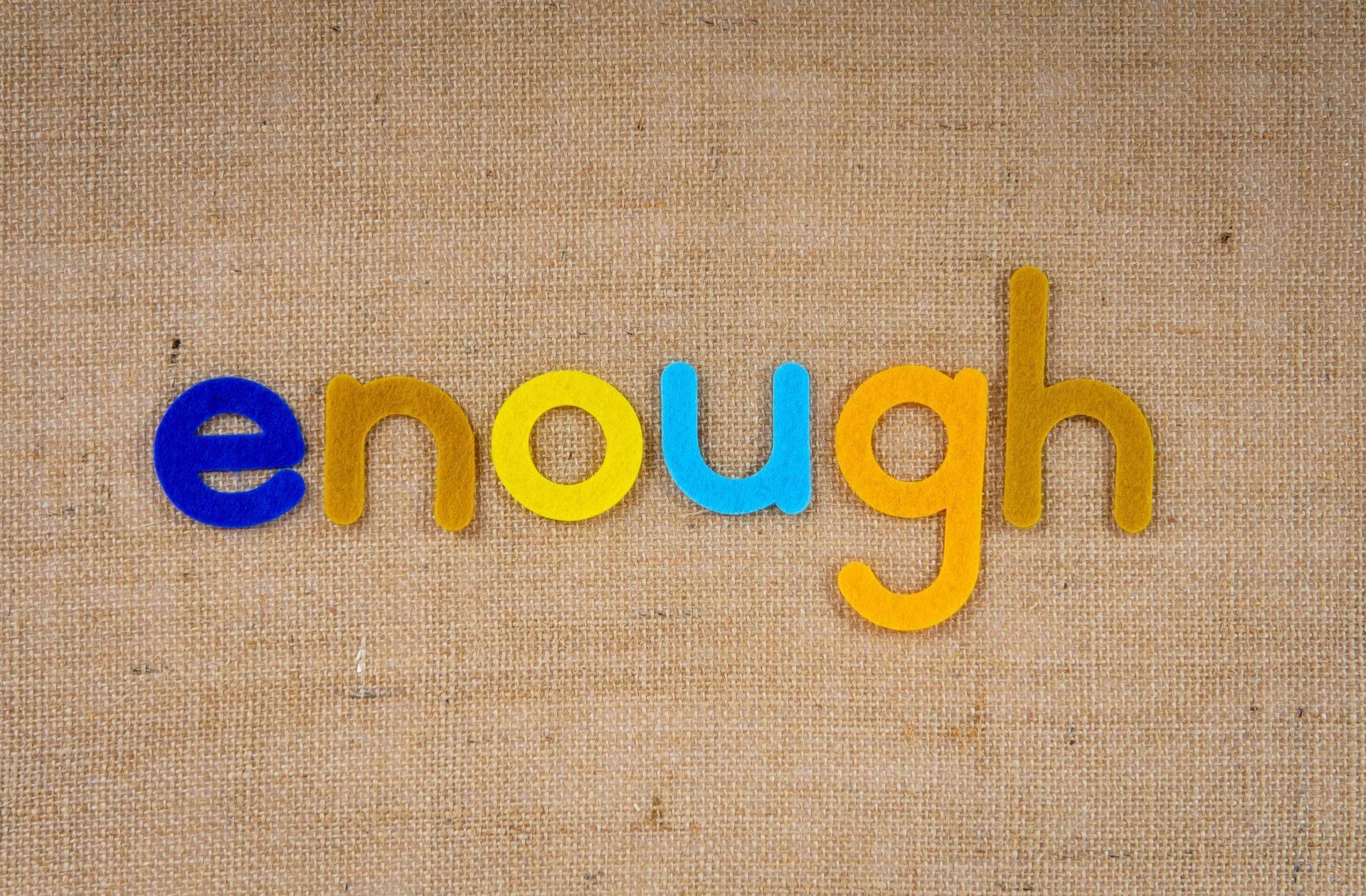What Happens When People Tell Themselves They Are Enough?

In a world that constantly pushes for self-improvement, higher achievements, and more accomplishments, the idea of being "enough" can feel almost radical. But what happens when people genuinely tell themselves, "I am enough"? How does this shift in self-perception impact mental health, relationships, and overall well-being? Let's explore the psychological and emotional effects of embracing the belief that you are inherently worthy as you are.
Improved Mental Health
Research in psychology suggests that self-acceptance is a key factor in mental well-being. A study published in Self and Identity (Neff & Vonk, 2009) found that self-compassion, which includes self-acceptance, is linked to lower levels of anxiety and depression. When people internalize the belief that they are enough, they tend to experience reduced self-criticism and perfectionism—two major contributors to mental distress.
Increased Self-Confidence and Resilience
Believing that you are enough fosters a sense of self-worth that is independent of external achievements or validation. According to research published in Personality and Individual Differences (Milyavskaya & Koestner, 2011), individuals with higher levels of self-acceptance tend to pursue goals from a place of intrinsic motivation rather than fear of inadequacy. This makes them more resilient in the face of challenges, as setbacks do not define their self-worth.
Healthier Relationships
When individuals embrace their inherent worth, they are more likely to cultivate healthy relationships. Studies in social psychology suggest that low self-esteem often leads to dependence on others for validation, which can create unhealthy attachment patterns (Murray, Holmes, & Griffin, 2000). On the other hand, those who believe they are enough approach relationships with security, leading to better communication, stronger boundaries, and more fulfilling connections.
Increased Productivity and Creativity
Paradoxically, telling yourself that you are enough does not lead to complacency; rather, it creates an environment where creativity and productivity thrive. When people feel worthy regardless of external success, they are more willing to take risks, innovate, and embrace failure as a learning opportunity. A study from The Journal of Positive Psychology (Deci & Ryan, 2000) supports this, indicating that individuals who feel intrinsically valued are more likely to engage in meaningful and creative work.
A Greater Sense of Fulfillment
One of the most profound effects of believing you are enough is the shift from a constant state of striving to one of presence and gratitude. People who accept themselves as they are often experience greater life satisfaction because they are not caught in the endless loop of "not enoughness"—a psychological trap that leads to chronic dissatisfaction. Studies in mindfulness research have shown that self-compassion and acceptance lead to higher overall well-being (Kabat-Zinn, 1994).
How to Cultivate the Belief That You Are Enough
- Practice Self-Compassion – Treat yourself with the same kindness and understanding as you would a close friend.
- Challenge Negative Self-Talk – Recognize and replace thoughts of inadequacy with affirmations of self-worth.
- Set Healthy Boundaries – Protect your energy and emotional well-being by surrounding yourself with supportive people.
- Engage in Mindfulness Practices – Meditation, journaling, and self-reflection can help reinforce self-acceptance.
- Celebrate Small Wins – Acknowledge and appreciate your progress, no matter how small.
Telling yourself that you are enough is not about rejecting growth or ambition. Rather, it is about recognizing your inherent worthiness, regardless of achievements, setbacks, or external validation. This mindset shift can lead to profound changes in mental health, relationships, productivity, and overall life satisfaction. In a society that often equates self-worth with success, embracing the belief that you are enough is a radical act of self-love and empowerment.
References:
- Deci, E. L., & Ryan, R. M. (2000). The "what" and "why" of goal pursuits: Human needs and the self-determination of behavior. The Journal of Positive Psychology.
- Kabat-Zinn, J. (1994). Wherever You Go, There You Are: Mindfulness Meditation in Everyday Life.
- Milyavskaya, M., & Koestner, R. (2011). Psychological needs, motivation, and well-being: A test of self-determination theory across multiple domains. Personality and Individual Differences.
Center for Psychological Health & Wellness
122 West Lancaster Avenue, Shillington, Pennsylvania 19607, United States
Phone 484-509-0499 Fax 484-324-6685
Please click this link to view the Center for Psychological Health and Wellness Privacy Policy for TCR Registration for SMS.
Copyright © 2024 Center for Psychological Health & Wellness - All Rights Reserved.

